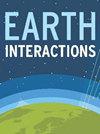Earthworm Abundance Increased by Mob-Grazing Zero-Tilled Arable Land in South-East England
IF 1.1
4区 地球科学
Q3 GEOSCIENCES, MULTIDISCIPLINARY
引用次数: 0
Abstract
Regenerative agriculture is a potential alternative to conventional agricultural systems. It integrates the components of zero-tillage, permanent soil cover, diverse crop rotations and rotational or mob-grazing by ruminant livestock. Earthworms are beneficial soil macrofauna and function as indicators of soil health. A need exists to identify how earthworm populations are affected when all four regenerative agriculture components are implemented simultaneously. This study investigates earthworm abundance in three split-plot treatments located on adjacent land within the same farm: (1) ungrazed permanent grassland, (2) a three-year grass-clover ley within an arable zero tillage system without grazing and (3) identical to treatment 2 but with mob-grazing. Earthworms were sampled using soil pits and classified into four functional groups: epigeic (surface dwellers), endogeic (sub-surface), anecic (deep soil) and juveniles. The total earthworm count, epigeic and juvenile functional groups were significantly (p ≤ 0.05) higher in treatment (3), the arable zero tillage system with mob-grazing. Mob-grazing increases the diversity of carbon sources available to earthworms and has a positive impact on earthworm abundance and functional group diversity within the arable rotation under evaluation.暴民放牧增加了英格兰东南部无耕耕地的蚯蚓数量
再生农业是传统农业系统的潜在替代方案。它整合了免耕、永久土壤覆盖、多样化作物轮作和反刍牲畜轮牧或群居放牧的组成部分。蚯蚓是有益的大型土壤动物,具有土壤健康指标作用。有必要确定当同时实施所有四个可再生农业组成部分时蚯蚓种群的影响。本研究调查了位于同一农场内相邻土地上的三种分块处理的蚯蚓丰度:(1)未放牧的永久草地;(2)在无放牧的可耕免耕制度下的三年草-三叶草草地;(3)与处理2相同,但有放牧。采用土壤坑法对蚯蚓进行取样,并将蚯蚓分为4个功能类群:表生(地表居民)、内生(地下居民)、内生(深层土壤居民)和幼虫。暴民放牧免耕处理(3)的蚯蚓总数、表生功能组和幼虫功能组显著(p≤0.05)增加。暴民放牧增加了蚯蚓可利用碳源的多样性,并对蚯蚓丰度和功能群多样性产生积极影响。
本文章由计算机程序翻译,如有差异,请以英文原文为准。
求助全文
约1分钟内获得全文
求助全文
来源期刊

Earth Interactions
地学-地球科学综合
CiteScore
2.70
自引率
5.00%
发文量
16
审稿时长
>12 weeks
期刊介绍:
Publishes research on the interactions among the atmosphere, hydrosphere, biosphere, cryosphere, and lithosphere, including, but not limited to, research on human impacts, such as land cover change, irrigation, dams/reservoirs, urbanization, pollution, and landslides. Earth Interactions is a joint publication of the American Meteorological Society, American Geophysical Union, and American Association of Geographers.
 求助内容:
求助内容: 应助结果提醒方式:
应助结果提醒方式:


